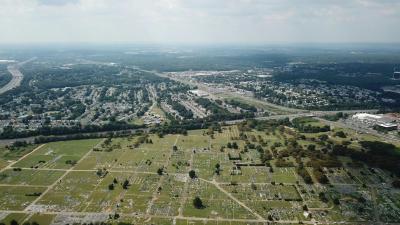Urban Expansion May Create Food Insecurity and Reduced Carbon Sequestration
Globally, urban expansion is projected to consume an area up to twice the size of Texas by 2100, potentially overtaking farmland and reducing crop yields by 310 million tons annually. This sprawl could significantly impact the climate by eliminating plants that absorb CO2, potentially increasing emissions by 6.59 billion tons each year. The growth of cities thus poses a dual threat to food security and climate stability, highlighting the need for sustainable urban planning.
Our study reveals that urban expansion by 2100 could encroach on agricultural land, negatively affecting the crop yields required for a burgeoning population. This pioneering research integrates projections of dynamic urban land changes with projections of non-urban land change, highlighting the potential rise in carbon emissions due to land alterations. We offer predictions on crop production and carbon cycles, aiding further exploration of adaptive strategies. The implications are profound for urban planning, agriculture, and climate science, emphasizing the necessity of sustainable urban development to avert food crises and mitigate climate change.
Recent research integrates dynamic urbanization into a multisector model framework to assess the impact of urban land extension on the land system, crop production, and net primary production (NPP). The study projects that by 2100, urban expansion could displace up to 1.4 million km² of agricultural lands, potentially compromising 22 to 310 Mt of staple crop production annually. This urban growth could halve the anticipated increases in corn yields required to meet future demands, indicating a significant threat to food security.
The findings also reveal that urban extension could lead to a reduction in NPP, ranging from 0.24 to 2.24 Gt C yr⁻¹, which may increase land emissions by 1.19 to 6.59 Gt CO₂ yr⁻¹. This suggests that urbanization could exacerbate the challenges of climate change mitigation by increasing emissions from land changes.
These results highlight the need for sustainable urban planning that accounts for the impacts of urban growth on other land uses. The study emphasizes the importance of considering urban dynamics in human-Earth system models to avoid underestimating the impact of urbanization on land resources and carbon budgets. The research provides a valuable perspective for decision-makers and stakeholders involved in urban development and environmental management.

